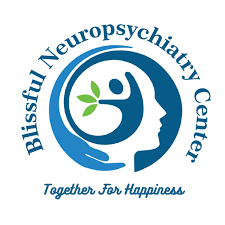Many people, when they come to see a psychiatrist, express a fear of being prescribed medication. They say, “I have a mental health problem, but I don’t want to take medication.” This fear can even prevent people from seeking help altogether.
Conversely, there are others who, when a psychiatrist recommends counseling or psychotherapy, say, “What’s the point of talking? I want medicine. Please just give me a pill.”
This highlights a significant misunderstanding about the roles of psychotherapy and medication in treating mental health conditions.
The Two Major Theories of Mental Health
Medical science explains mental health problems through two primary theories:
Biological Theory: This theory states that mental health issues are caused by an imbalance in brain neurochemicals (neurotransmitters) such as serotonin, norepinephrine, dopamine, and acetylcholine. Medical doctors, like psychiatrists, use this theory to prescribe medications that help manage and balance these chemicals.
Psychological Theory: This theory proposes that mental health problems arise from an individual’s inability to effectively manage the stresses of life. Psychotherapists and psychologists operate on this basis, using counseling and various psychotherapeutic sessions to help people talk through and process their problems. They believe that by discussing and sharing their experiences, people can ultimately heal.
Choosing Between Medication and Therapy
For a long time, the debate was whether to go to a psychiatrist for medication or a psychotherapist for counseling. However, recent research has shown that the most effective approach for many conditions is a combination of both. In other words, a person who receives both medication and therapy often has better outcomes than someone who only does one or the other.
Still, a critical question remains: When is medication more suitable, and when is counseling better?
For mild depression, either psychotherapy or medication alone can be effective.
For moderate to severe depression, medication is usually necessary. Psychotherapy can then be added to enhance the benefits.
Similarly, anxiety in its early stages can sometimes be managed with counseling alone, but medication may offer additional benefits.
Insomnia and somatoform disorders (physical symptoms caused by psychological distress) often respond well to counseling and psychotherapy. However, for physical symptoms like headaches, body aches, or gastrointestinal issues, medication may provide more immediate relief than counseling alone.
Addiction and sexual problems also benefit from a combined approach of medication and psychotherapy.
For severe conditions like psychosis or schizophrenia, medication is the primary treatment, though counseling can be a valuable supplement later in the recovery process. Relying solely on counseling for these severe illnesses is not scientifically recommended.
The Primary Role of Counseling
Counseling and psychotherapy are particularly effective in certain situations, including:
Relationship issues: Conflicts with family, partners, or friends.
Mild mental health symptoms: Early signs of distress or emotional struggles.
Grief: Dealing with the loss of a loved one.
Existential questions: Finding purpose and meaning in life.
Personality disorders: Conditions like borderline personality disorder or antisocial personality disorder.
Children under 14: For younger individuals, counseling is often the preferred first step before considering medication, which is used cautiously in this age group.
Anger and aggression: Impulse control and emotional regulation issues.
Counseling also includes specialized forms of therapy like couple counseling, family counseling, and parental counseling, which address conflicts between specific individuals.
There are many different types of psychotherapy, each with its own approach, such as Cognitive Behavioral Therapy (CBT), Psychodynamic Psychotherapy, and Gestalt Therapy. A psychotherapist will often specialize in one or more of these techniques.
Ultimately, the decision of whether to use medication, counseling, or both should be made in consultation with a professional. The best treatment plan depends on the specific problem, its severity, and its nature. Understanding this can make the process much easier for both the patient and the healthcare provider.




